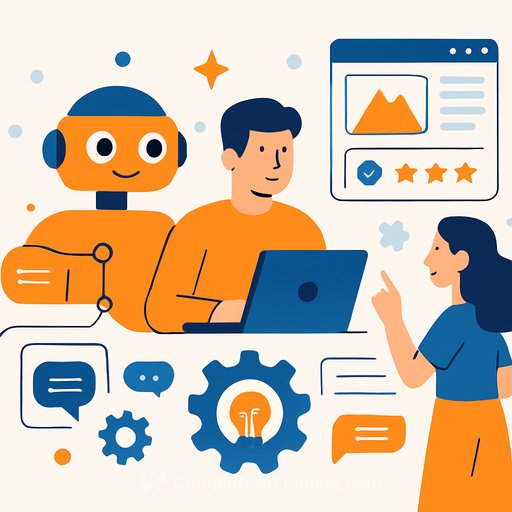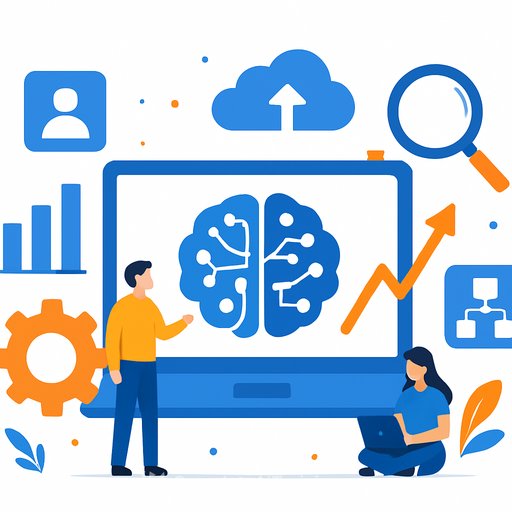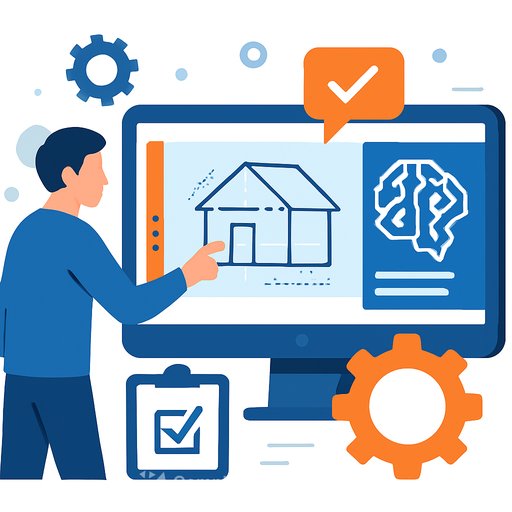How AI is Changing the Way Companies Listen and Build Products, with Brad Anderson of Qualtrics
Brad Anderson, president of products, user experience, engineering, and security at Qualtrics, shares insights on how AI is influencing product development and customer feedback. With a rich background at Microsoft and now leading at Qualtrics, his perspective sheds light on the practical shifts AI is creating in technology and engineering teams.
The Pace of AI Innovation
Anderson notes the speed of AI advancements is unlike anything he’s seen before. His team provides weekly summaries of AI changes to keep everyone updated. This fast pace requires teams to stay agile and informed to effectively integrate new AI capabilities.
Transforming Customer Feedback with AI
Qualtrics uses generative AI to improve survey engagement. Typically, surveys have a 75% completion rate. With AI-enabled conversational feedback, this climbs to 83%. More impressively, follow-up questions generate 30 times the amount of response content, increasing data volume by 10% and doubling quality.
Boosting Engineering Productivity
On the engineering side, AI tools like Cursor are generating millions of lines of code. These AI-generated codes undergo human review and correction before being integrated. Currently, about 45% of new code checked into Qualtrics products comes from AI assistance, accelerating development without compromising quality.
Changes in Engineering Team Structures
The rise of AI is shifting team compositions. Anderson predicts a decrease in entry-level engineering roles by 3% to 5% in the coming years. This reflects a move toward more experienced engineers who can effectively work alongside AI systems and manage sophisticated projects.
Trust as a Foundation for AI Success
For companies adopting AI, trust becomes a critical factor. Anderson emphasizes that organizations trusted by their business leaders will be best positioned to succeed with AI initiatives. Transparency, security, and reliability are key to building that trust.
Using AI to Improve Decision-Making
Anderson shares how he uses AI tools like ChatGPT to generate ideas and explore strategies for improving AI capabilities within his organization. While AI may not have all the answers, it provides useful prompts and suggestions to guide leadership decisions.
Real or Ridiculous? AI and Cloud Buzzwords
Brad Anderson hosted a fun segment challenging listeners to identify real AI and cloud terms from made-up ones. Here are some examples:
- Quantum Cloud Orchestration: A real system managing workloads for quantum computers hosted in the cloud.
- Federated Learning: A genuine machine learning method training models across decentralized devices while keeping data local.
- Cognitive Load Balancing: A made-up term suggesting AI-based traffic distribution based on users’ cognitive states.
- Serverless AI Inference: A real concept where AI predictions run without managing servers, scaling automatically.
- Hyper-Personalized Edge AI Microservices: A legitimate approach delivering customized AI services directly on edge devices.
- Sentient Cloud Nexus: Fictional—an autonomous cloud infrastructure with self-awareness and decision-making.
- Emotion-Centric Journey Taxonomy: A real framework categorizing user sentiment across experience touchpoints for brand adjustments.
For product developers, understanding which AI terms are practical and which are marketing fluff can help focus on meaningful innovation.
Qualtrics continues to lead in applying AI to improve how companies gather feedback, accelerate engineering, and build trust in AI-driven products. For those interested in expanding their AI skills relevant to product development, exploring specialized AI courses can be a practical next step. Check out resources like Complete AI Training’s courses by job role for tailored learning paths.
Your membership also unlocks:






